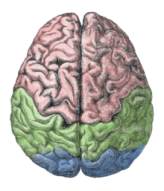
In the first few weeks after a brain injury, swelling, bleeding or changes in brain often affect the function of healthy brain tissue. The injured person’s eyes may remain closed, and the person may not show signs of awareness. . Some terms that might be used in these early stages of recovery are:
- Coma: The person is unconscious, does not respond to visual stimulation or sounds, and is unable to communicate or show emotional responses.
- Vegetative State: The person has sleep-wake cycles, and startles or briefly orients to visual stimulation and sounds.
- Minimally Conscious State: The person is partially conscious, knows where sounds and visual stimulation are coming from, reaches for objects, responds to commands now and then, can vocalize at times, and shows emotion.
A period of confusion and disorientation is common after a brain injury. A person’s ability to pay attention and learn stops, and agitation, nervousness, restlessness or frustration may appear. Sleeping patterns may change. The person may become physically aggressive.
Inconsistent behavior is also common. Some days are better than others. For example, a person may begin to follow a command (lift your leg, squeeze my finger) and then not do so again for a time. This stage of recovery may last days or even weeks for some. In this stage of recovery, try not to become anxious about inconsistent signs of progress. Ups and downs are normal.
Later stages of recovery can bring increased brain and physical function. The person’s ability to respond may improve gradually.
